 Pam Beason recently left a lovely comment on my blog. I thanked her and asked a few questions, and she was smart and lovely and generous with her responses. I visited her website to learn more and downloaded a sample of The Only Witness, about a signing gorilla who witnesses a kidnapping. Witness caught my attention so completely I bought the full version right away. Pam’s plot, characters and voice are real, contemporary, well written, and well developed. The story moved at a fast clip and I followed, finishing the book in record time. I went back for another and devoured Shaken.
Pam Beason recently left a lovely comment on my blog. I thanked her and asked a few questions, and she was smart and lovely and generous with her responses. I visited her website to learn more and downloaded a sample of The Only Witness, about a signing gorilla who witnesses a kidnapping. Witness caught my attention so completely I bought the full version right away. Pam’s plot, characters and voice are real, contemporary, well written, and well developed. The story moved at a fast clip and I followed, finishing the book in record time. I went back for another and devoured Shaken.
Wonderful writing, Pam! Your mysteries are exactly the type of book I want to read. Great stories, relatable characters, and deeply interesting plots that teach me something every time. Please share a little bit about your journey!
Q: You’re a self-published author selling your own books while a major publisher is about to release them. Explain?
I found an agent a few years ago. I had several offers from people with outrageous contracts and little experience; Curtis Russell of PS Literary was the first to answer my questions in a reasonable way and cough up a reasonable agency contract. However, after a couple of years shopping two mysteries and a romance with a lot of near misses but no contracts, I self-pubbed my first book while Curtis continued to offer it to publishers. Four months after I self-pubbed it, Wild was picked up by Berkley Prime Crime, along with two sequels. Wild has been re-titled Endangered and will appear on shelves December 6, 2011, with minor changes. Curtis also got me a great German translation deal.
I currently have three self-pubbed fiction ebooks that are selling well and I am getting set up to print my own hard copies. I’m doing both the self-publishing route AND the traditional NYC route, and am overwhelmed almost daily by the need to understand both publishing processes, promote, work at my regular jobs, and – of course – write!
Q: Clearly Berkley Crime didn’t mind that you’d self-pubbed when they picked it up? Lots of gossip that the big publishers frown on this. Not true?
It’s hard to say what is going on with publishers these days and they certainly won’t tell you. The business is definitely changing, publishers know this, and I would encourage all authors to self-publish at least in ebook form while seeking a contract. The subliminal message I have received is that if you self-publish, they can see you’re serious and understand how to write and put together a complete book. I believe a published book simply gets attention in a way that a partial or a manuscript doesn’t. That said, your book better be good and well-edited. A bad self-pubbed book will hurt rather than help.
If your book hasn’t already sold a lot of copies, an interested publisher may feel they can control the exposure and ‘own’ the readership. If the book has sold a ton of copies, they’ll want to horn in on your success. Of course in the latter case they have to make a very good monetary offer for rights and explain how they can help you, because you would already be earning from book sales.
I asked my agent if he thought it would be positive or negative to self-publish, and he said he believed it would make no difference. I would definitely consider a print offer from a good publisher (on the books Berkley did not pick up), because the current bookstore and world distribution market is still very hard to break into on your own. Also, help with advertising and marketing allows the author more time to write.
Q: What advice would you offer aspiring writers?
I always say try everything, and keep trying. The key truly is persistence. If you’re aiming for publication by the big publishers, you need to realize that they have only so many slots to fill in any year, and places for new writers are few. So if your romance manuscript lands on their desks when their romance slots are already filled for the next two years, it may get rejected solely for that reason. Also, fiction is very personal; some editors or agents simply won’t relate to your stories, while others might be very enthusiastic. Just keep trying. If you don’t succeed pretty quickly, consider self-publishing in ebook format. Warning about contracts from publishers and agents: Read any contract carefully; there are a lot of bad offers that lock authors into what is basically indentured servitude, and you don’t want that!
I learn something from every writer I meet. I think it’s so important to share information and be truthful so that we can all have realistic expectations. My advice is to encourage honest feedback from writers, editors, and critique partners at all times. Don’t get derailed by one person’s opinion, but if several people are giving you the same critique, listen and change. Don’t be afraid to ask questions, and pay attention to the answers, even if you don’t like them. Be polite. People move around a lot in publishing, and you never know where that editor you’ve been talking to is going to end up next.
Q: Please share your writing-related accomplishments and education.
I won the Daphne du Maurier prize (the Mainstream category and the overall prize for Unpublished Division) for Bear Bait, the sequel to Endangered. Bear Bait will be out next year. I studied screenwriting at the University of Washington and twice won a spot in the coveted Squaw Valley Writers Conference Workshop. Screenplay writing teaches you to focus on the essentials of storytelling. I believe that screenwriting education really helps my novels, and I often suggest that my critique partners envision a scene on the screen. If there’s absolutely no action or no interesting visuals described, you need to add them. You also need to understand what all the main characters want from the beginning of the story.
I’m a licensed private investigator, interested in many legal issues, and I have interviewed a lot of people – including criminals – so a lot of that works its way into my writing. I’ve also worked in the field of Internet multimedia, editing video clips, writing scripts for voiceovers, writing a lot of short articles, designing animations, etc. I’m an avid hiker/kayaker/snowshoer/scuba diver and wildlife lover, so there will always be some aspect of nature in all my books.
Q: Do you believe an author can write, learn, and teach at the same time?
To be good at writing, writers have to be constantly learning; I know I learn something new every day. I believe authors have a duty to write about important issues, even in fiction; we’ve all learned about a lot of history and social issues from books and movies. But it’s important not to be pedantic or prejudiced about the way you present things, and of course you’ve got to be entertaining, too. Endangered is about the search for a child in the wilderness, but the theme is the interaction between the media and the public, because television coverage leads people to believe the child was snatched by a cougar. I wanted to write about the media influence, because I often get upset about the way so many people make up their minds from watching a tiny snippet of news that is so rarely the whole story.
Note from Molly: Check out my novels on Amazon, join my Reader’s Club for freebies and book news, and follow me on Twitter. This original content is copyright protected. Thank you so much!

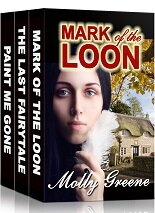
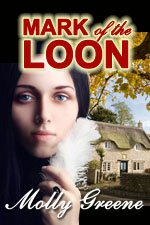
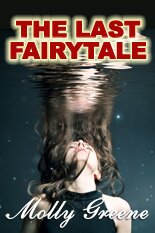
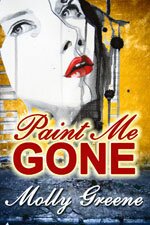
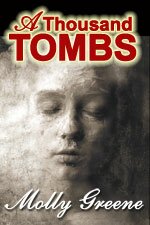
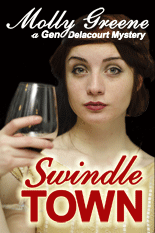
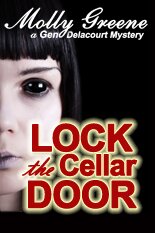
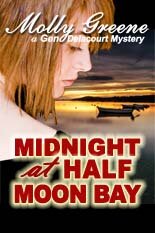
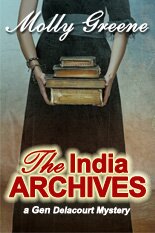

Comments are closed.